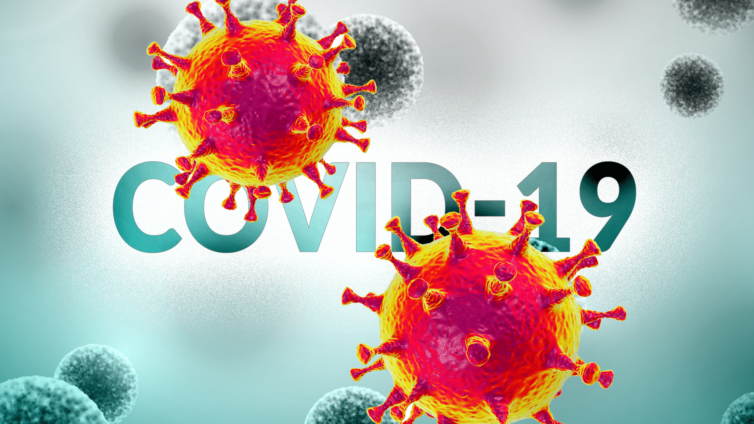Experts say the study should be a warning to those assuming they are immune because they've already had it.
Immunity to Covid-19 in recovered patients may only last a few months, and it could be caught again like a common cold, according to a new study.
Researchers at King's College London looked into the immune response of 90 patients and healthcare workers at Guy's and St Thomas' NHS Trust and found antibodies peaked three weeks after the onset of coronavirus symptoms and then declined.
Blood tests showed "potent" level of antibodies could be found in 60% of participants during the peak of their battle with Covid-19; however, only 17% sustained that same level three months later.
Antibodies decreased 23-fold in some cases, and were depleted entirely in others.
Lead author Dr Katie Doores told The Guardian: "People are producing a reasonable antibody response to the virus, but it's waning over a short period of time and depending on how high your peak is, that determines how long the antibodies are staying."
She added: "Infection tends to give you the best-case scenario for an antibody response, so if your infection is giving you antibody levels that wane in two to three months, the vaccine will potentially do the same thing. People may need boosting and one shot might not be sufficient."
Her comments suggest patients who had the most severe cases of Covid-19 had the highest antibody levels, and in turn those antibodies lasted the longest.
The study also raises questions about the concept of "herd immunity" from future outbreaks.
Experts said that although the study is yet to be peer-reviewed, it should be a warning to those assuming they are immune if they have been infected with the virus in the past.
Mala Maini, professor of viral immunology and consultant physician at University College London, said: "This study does reinforce the message that we can't assume someone who has had Covid-19 can't get it again just because they initially became antibody-positive.
"It also means a negative antibody test now can't exclude you having had Covid-19 a few months ago.
"And it suggests vaccines will need to be better at inducing high levels of longer-lasting antibodies than the natural infection, or that doses may need to be repeated to maintain immunity."
Latest Stories
-
AFCON 2025Q: Cameroon complete unbeaten qualifying run, Kenya and Namibia bow out
8 mins -
AFCON 2025Q: Tanzania defeats Guinea to secure AFCON ticket
19 mins -
Ghana embarks on polio vaccination campaign amid rising cholera cases
33 mins -
Election 2024: NCCE urges political parties to foster peaceful campaigns
37 mins -
We have disappointed the country – Black Stars team manager, Ameenu Shardow
41 mins -
‘I never thought of playing for Germany even though I was born there’ – Otto Addo
48 mins -
Samira Bawumia launches second literature anthology, ‘We Move: Ghanaian Dream in Motion’
49 mins -
Jobberman CEO charges employers to create culture of excellence in today’s competitive market
57 mins -
A vote for Bawumia an endorsement of hardship and corruption – Mahama
1 hour -
Access Bank launches ‘Power of 100 Africa’ to celebrate trailblazing women across continent
1 hour -
Monuments of Leadership: Honouring Ghana’s presidents and the debate on legacy
1 hour -
Fortitude Child Support Foundation, Shai Osudoku District Hospital create prematurity birth awareness in 2-day campaign
1 hour -
NDC calls for immediate removal of Brigadier Gen. Opoku
2 hours -
CIMG holds 34th AGM
2 hours -
Healthcare Education: Adapt to AI to improve educational outcomes; patient-centered care
2 hours

